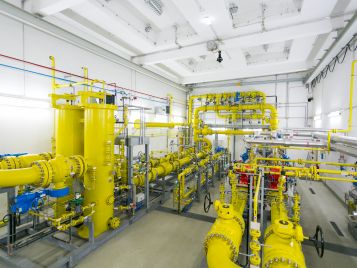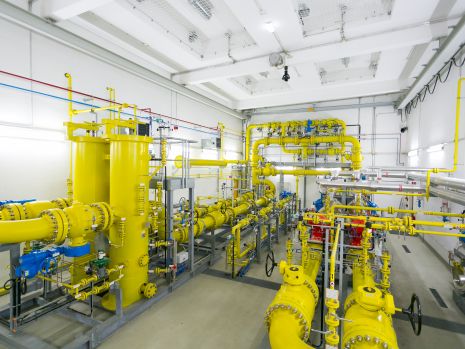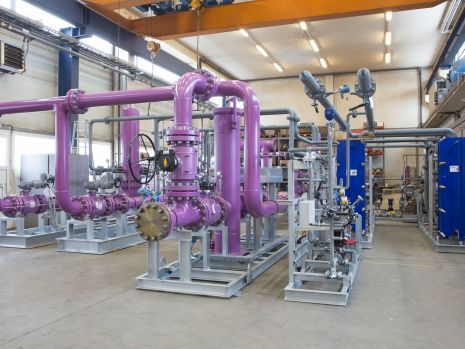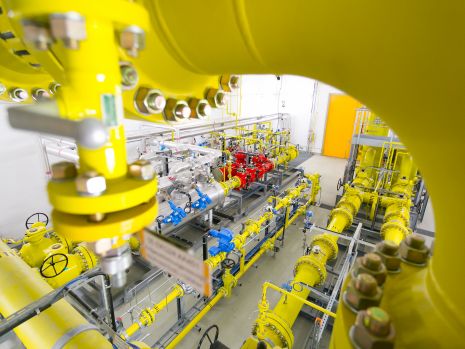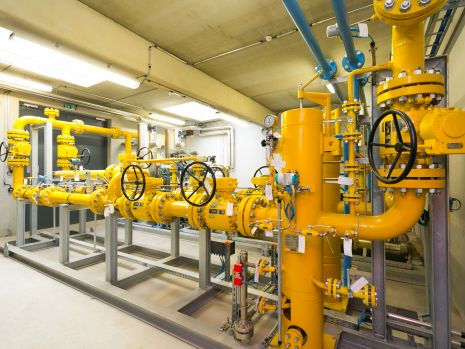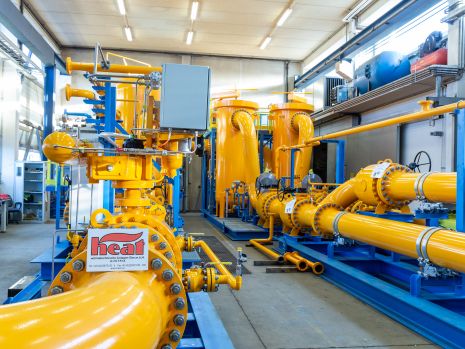Fuel Gas Supply Systems for gas power plants
Fuel gas supply systems are used to condition the fuel (natural gas) for gas turbines or boiler units to the necessary data needed for the burners.
Large consumers are usually supplied by a direct connestion tot he natural gas high pressure grid and therefore the pressure must be reduced to a lower level for the burners.
At gas turbine power plants the gas will be heated to high temperatures (app. 215 °C, depending on turbine type and manufacturer) to increase the efficiency of the turbine.
To protect the equipment used in the fuel gas systems from damaging and wearout in the entrance of the systems a efficient cleaning oft he gas is necessary. The gas can be contaminated by solids like rust, sand or similar and by liquids like water or hydrocarbons. Depending on the contaminations a filter-separator hast o be designed to clean the gas from all unrequested matter.
Usually the consumed fuel shall be metered for billing or for internal calculation of the efficiency of the heat/power generation. For the metering variable technical devices can be used. The most common meters als turbine flow meters and ultra sonic flow meters. The meter counts the actual flow rate and the operating temperature and pressure is measured in parallel. With these data the nominal flow rate is calculated.
To get also the energy content of the flow the calorific value of the fuel is needed. For this a gas chromatograph is installed in the system. This unit analyses online samples of the fuel gas, shows the gas composition and calculates the calorific value of the gas. With the nominal flow rate and the calorific value the heat content is calculated and this is the basis for billing and for the determination of the efficiency of the heat/power generator. To substitute the gas chromatograph the calorific value can be programmed in the flow computer or the value will be supported from the fuel gas supplier on line.
To supply the burners of the power generator usually the pressure hast o be reduced from a higher level to a lower level. By the expansion of the gas the gas temperature decreases and to compensate this process (Joule Thompson effect) the gas will be preheated before expansion. The preheating can be realized by electrical heaters or by warm water heat exchangers, supplied by warm water generators or by hot water or steam from the power plant.
